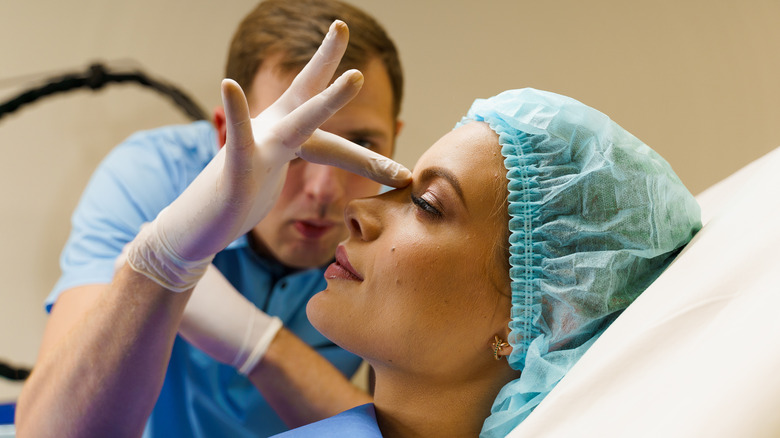The Difference Between Plastic Surgeons And Cosmetic Surgeons
The findings of a 19-question survey were published in the scientific journal Plastic and Reconstructive Surgery. It was found that 87% of more than 5,000 participants surveyed reported that they found it confusing to navigate which types of physicians were safely authorized to conduct surgery on one's appearance.
When it comes to any kind of medical procedure, it's important you know you're in the right hands. While the two practices may share some similarities, ultimately, plastic surgery and cosmetic surgery serve distinctly different purposes, according to the American Board of Cosmetic Surgery. Let's break down the differences.
Cosmetic surgeries are elective procedures targeting healthy, functioning areas of the body for an aesthetic purpose. Such procedures can include facelifts, breast augmentation, cheek enhancements, filler treatments, or Botox, amongst others. Unlike cosmetic surgery, which treats undamaged areas of the body, plastic surgery is "a surgical specialty dedicated to reconstruction of facial and body defects due to birth disorders, trauma, burns, and disease," according to the American Board of Cosmetic Surgery.
Differences in surgeon credentials
While a plastic surgeon's training does include some cosmetic procedures, their six to eight years of schooling (via Healthline) also involves training in scar revision, hand surgery, lower extremity reconstruction, burn repair, congenital defect repair, and more (via American Board of Cosmetic Surgery). This is not the case for cosmetic surgeons.
Chief of plastic and reconstructive surgery at Mount Sinai Downtown in New York Dr. Jordan Jacobs, tells Healthline how confusion can stem from differences in credentials, stating, "The real confusion lies in the fact that, legally, any physician with a valid medical license can perform cosmetic procedures, regardless of their training. Therefore, any physician can advertise as a cosmetic surgeon."
However, while any doctor can perform cosmetic surgery, it does not mean they're formally accredited by The American Board of Cosmetic Surgery (ABCS). Therefore, patients may run the risk of undergoing cosmetic procedures which fall within a physician's specialty but who may not be as knowledgeable in all cosmetic procedures as they would be if accredited (via Healthline). Conversely, board-certified plastic surgeons are accredited by The American Society of Plastic Surgeons (ASPS). Experts at Cohn Plastic Surgery cite that "less than five percent of certified cosmetic surgeons are certified in plastic surgery." Therefore, when it comes to meeting your specific medical needs, it's important to know whether your board-certified surgeon is certified by The American Board of Cosmetic Surgery (ABCS) or The American Society of Plastic Surgeons (ASPS).


